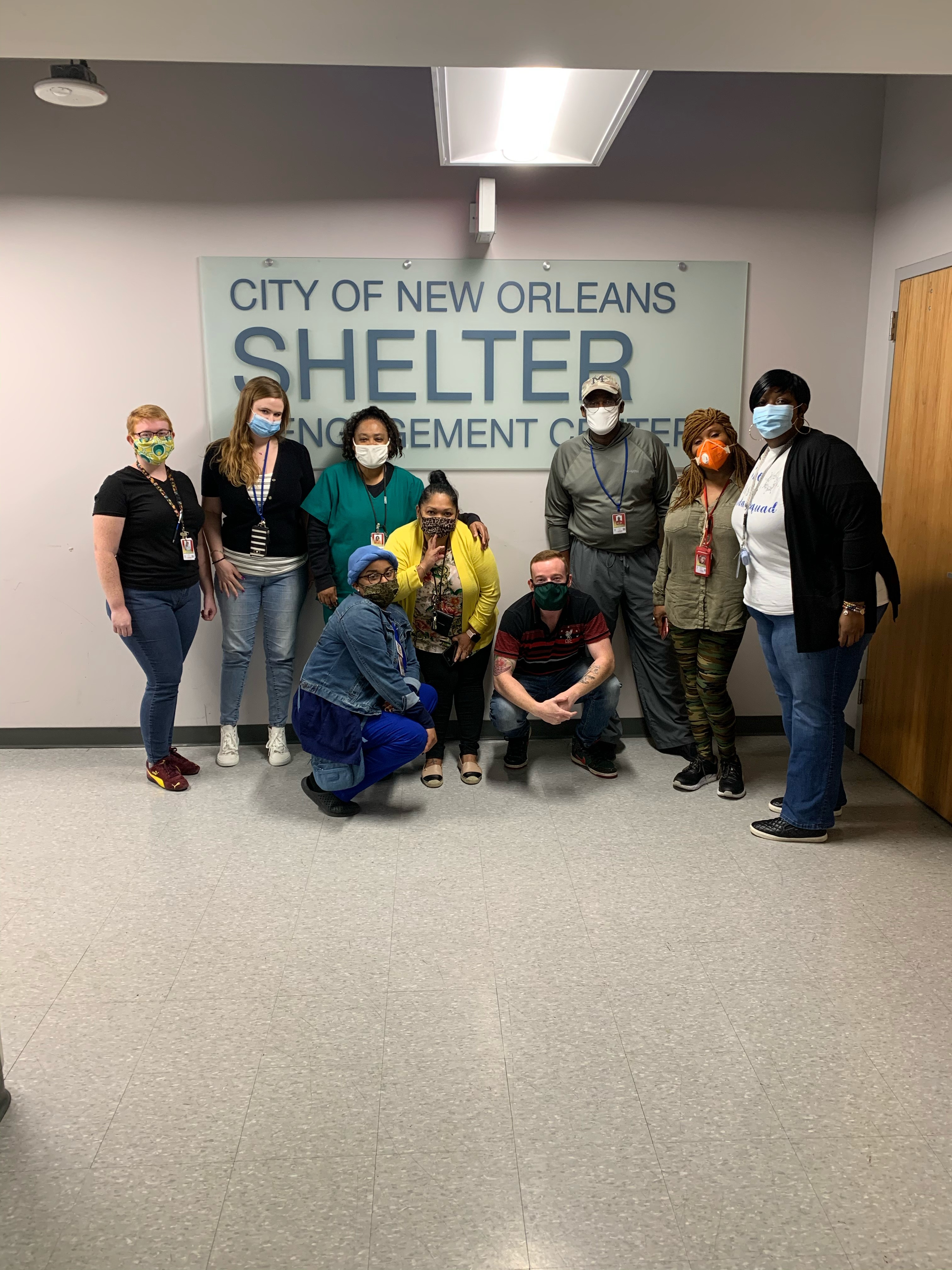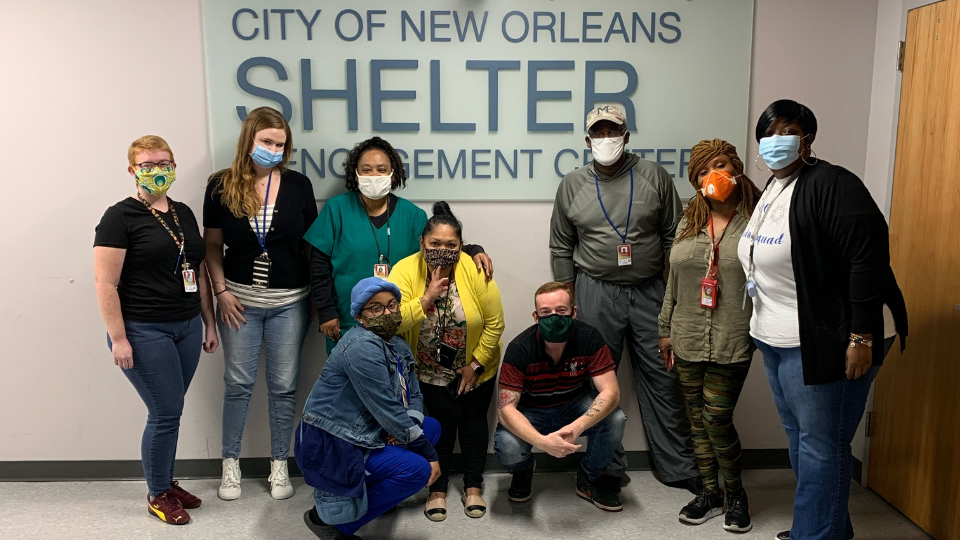You are here
Stories from the Field: Grant Award for Community Garden at Low Barrier Shelter

Creative thinking and initiative are required when working with under resourced communities. Master of Social Work students interning with community organizations quickly come to understand that empowerment comes in many forms, and they often must reach further in both their ideas and action to truly serve. As a fourth-semester MSW candidate at the Tulane University School of Social Work, Jacob Pleasure has done just that through a community garden grant he has recently acquired for his field placement at the City of New Orleans Shelter and Engagement Center.
Also called the Low Barrier Shelter, this facility provides housing assistance to people experiencing homelessness. “No matter what, you deserve a roof. So, low barrier means no background checks, no religious affiliation, no sobriety requirement, and no time limit,” Jacob said. “All of these factors allow strong working relationships to form between guests and staff. While in the shelter, guests have a lot of autonomy. They want to have control over their own lives, and we want to support them in that.”
The COVID-19 pandemic brought a few changes to the shelter, including temperature checks. While helping to administer the checks, Jacob noticed one guest in particular was resistant. He began to think deeper about why that was, and the resistance seemed to be rooted in an understandable frustration with a loss of control. “I talked it through with my Mom, who inspired me to think about what the shelter could provide for its guests to give them a sense of self-governance,” said Jacob. “That’s when I started looking into a community garden.”
Jacob dove into researching the community garden idea. He looked at other gardens, searched for what type of plants grow well in Louisiana, and reached out for help. Another MSW student in his Field Seminar class recommended he apply on the shelter’s behalf for an Entergy Community Grant. Entergy awarded the proposal $1,667, the maximum requested amount. This will build 20 garden beds, tools, hoses, and flower pots. He spoke to the Rebuild Center about materials, and they graciously donated four garden beds. He then connected with Jefferson Feed, who generously agreed to donate seeds, soil, and gravel on an ongoing basis.
While these supplies are coming in from other sources, the community garden at the shelter will be guest-centered. “This means literal and metaphorical growth,” Jacob said. “Guests will decide what vegetables and flowers to grow from a wide variety of options. It’s self-sustainable in that what’s grown can be used in meals, and it will make the space more beautiful. Hopefully, we’ll attract butterflies and bees to give them a home as well.”
Initiatives like community gardens support the shelter’s trauma-informed care. “It creates an environment that helps clients regain a sense of humanity, control, and comfort,” Jacob said. “They will have ownership of a plot of land to grow something meaningful to them.”
This grant and the garden are important to Jacob because he loves his placement. “Each day is beautifully unexpected and different, and my supervisors - Grace and Lauren - as well as the entire staff set a great example of persistence and engagement with clients,” Jacob said.
With much of his time, Jacob helps the shelter’s guests with housing plans, talking about their goals and how to achieve them, helping them stay on that plan, and prompting them when needed. He also helps clients file for SNAP and unemployment and connects them with case managers and other organizations for more resources and counseling. This field work opportunity has made Jacob more aware of housing barriers and how to be an advocate. He has also improved his understanding of mental illness and substance abuse, as well as how all of these elements are interconnected.
Having grown up in Maryland, Jacob started his career there as a high school English teacher. He worked at a Mississippi summer camp during some summers, and visits to New Orleans introduced him to the area and the people. “I had been teaching at my old high school, a job that I really enjoyed,” Jacob said. “I wanted, though, to shift my professional orientation in a social work direction, and I wanted to do so in a city I felt truly connected to. It was always going to be New Orleans.”
Like many others who find themselves drawn to social work, Jacob discovered he wanted to help on a different level. “I came to Tulane to get the right training to do more for people with trauma and those in marginalized communities,” Jacob said.
Jacob’s efforts were only made possible through collaboration, which is a key component of social work. “We need to learn from those around us - our supervisors, colleagues, and especially our clients” Jacob said. “They are the ones that can help us deal with challenging situations, and can inspire us to better empower our community.”
